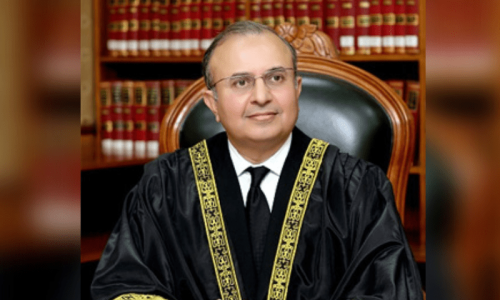SEOUL, July 20: South Korean Prime Minister Han Seung-Soo on Sunday accused Japan of damaging bilateral ties and putting regional peace at risk with its renewed claim to a group of Seoul-controlled islets.
Han, meeting with ruling party lawmakers, rejected Tokyo’s new education guidelines calling for “a deeper understanding” of Japan’s claims to the islets — called Takeshima in Japan and Dokdo in Korea — lying midway between them.
“This is not only damaging the amicable South Korea-Japan relationship... but also undermining peace in Northeast Asia by letting the future generations repeat the distorted history,” Han said.
The ruling Grand National Party (GNP) said in a statement after the talks with Han that Seoul would make the rocky islets sufficiently habitable for people to live on, helping to thwart Tokyo’s territorial claims.
“The party, the government and the (presidential) Blue House reached a consensus that it is very important to make Dokdo inhabited islands as one of the concrete countermeasures,” it said, without elaborating.
Also discussed at the talks was the possibility of exploring minerals in the seabeds, allowing wider public access, building a maritime hotel to promote tourism and sending marines to the islets, it said. In protest, South Korea last week recalled its ambassador to Japan and rejected Japan’s proposal for foreign ministerial talks on the sidelines of a regional security forum in Singapore this coming week.
Angry South Koreans have almost daily held protest rallies at the heavily-guarded Japanese embassy in Seoul, with some last week beheading live pheasants, Japan’s national bird. In the southern city of Busan, an association of civic groups launched a campaign to boycott Japanese cars.
South Korea stations a small unit of maritime police on the rugged and treeless islands.
Japan claimed them in 1905 after winning a war with Russia in the region. It went on to annex the entire Korean peninsula from 1910 until its 1945 defeat in World War II.“Dokdo belongs to Korea historically, geographically and in terms of international laws,” Han said reiterating Seoul’s position.—AFP










































Dear visitor, the comments section is undergoing an overhaul and will return soon.